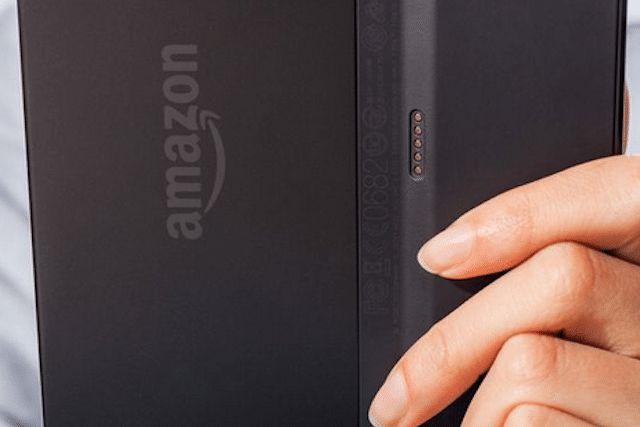As a wise man once said, piracy is often a pricing issue, not a servicing issue. In short, people pirate things not because they don’t want to pay for them, but because the legal avenue to obtain them is unnecessarily obtuse or customer unfriendly. With that in mind, here are five amusing stories about lesser known, but oddly popular items that have found themselves being pirated over the last few years.
5. The Green Lantern movie was searched for more in 2011 than “porn”
If there’s one thing it’s not hard to find on the internet, it’s images and video of people doing the horizontal hug. Pornography is ubiquitous online and remains one of the internet’s most traded and oft-pirated forms of media… except for in 2011, when more people wanted to watch that terrible live-action Green Lantern movie.
To explain, according to collated list of the 100 most searched for terms on a popular torrent site throughout all of 2011, more users searched the words “green lantern” that year than they did the word “porn”. Along with apparently being more popular than the most generic search term to find pictures of boobs online we can think of, “green lantern” was sought out by pirates more often than even objectively better content that came out that same year, like Captain America: The First Avenger or Breaking Bad. Then again, maybe the reason pirates torrented the Green Lantern movies so much is because they didn’t feel it was worth paying for it. Hell, we wouldn’t blame them, we paid to see that movie and wish we could have that money back every time we don’t have enough change to buy a soda.
4. The most commonly pirated eBooks are about being better at sex, Photoshop, and math

Thanks to the rise of electronic reading devices like the Kindle, it’s possible to download and, perhaps more pertinently to this article, pirate your favorite books. Meaning that yes, we live in an age where it’s possible to illegally download 18,000 copies of the Bible if you really felt like it.
Like most things online, sites on which it’s possible to illegally download eBooks meticulously track what users are doing and the results are actually kind of fascinating. For example, in 2011 it was found that the 10 most torrented ebooks by users of the PirateBay included two books about using Photoshop, and three books detailing how to be better at sex, neither of which seems all that surprising at first. However, inexplicably sandwiched between both these things on the list is a book titled 101 Short Cuts in Maths Anyone Can Do. A book that, as far as we can tell, detailed neither how to blow a woman’s mind in bed or better use radial gradients. Meaning maybe, just maybe, it was torrented purely for the benefit of learning something interesting, but ultimately useless in real life. Speaking of which…
3. People love pirating college textbooks

There are hundreds of horror stories about the ever rising cost of college textbooks floating around the internet, from students having to pay hundreds of dollars to buy a book their professor wrote, to textbooks being reprinted every year just to force students to buy them again. Most sources are in agreement that college textbooks simply cost too much, but few offer a solution to the problem. Or, should we say, few offer a legal solution to the problem… because many students have found that pirating a textbook they’re going to use for one class is a preferable alternative to eating nothing but ramen for a semester.
Along with uploading PDFs of popular course books, more enterprising students have skirted around the soaring price of college reading material by doing things like pooling their cash buy a single copy and photocopying every page. To make this fact even more hilarious, the Washington Post has found that some students have even been found pirating textbooks for ethics classes. Meaning there’s a student out there somewhere writing an essay about the ethics of digital piracy, while referencing a pirated copy of their course textbook. The only way to make submitting that essay a bigger slap in the face for the professor would be to position the printer over their sleeping face, and replace the paper in it with slices of wet ham.
2. Pirated cable boxes offer better service than actual cable companies

Online streaming services have been collectively kicking the cable industry in its aging, greying sack for a while now, and for the most part cable companies have done nothing to try and compete with the superior service they provide. For example, a common complaint about cable companies is that they refuse to offer a la carte programming (basically the option to pick and pay for only one or two channels), and have repeatedly insisted that this isn’t possible. Which is weird, because the people pirating their service can do exactly that.
Yes, there are unscrupulous folks out there who will sell you a pirated cable box or Android device with any channel you want unlocked. The difference being that, unlike cable companies (who will slap on a bunch of stuff you don’t want and charge you $80 dollars every month for the privilege), the people those same cable companies call thieves, will charge you once and only give you exactly what you feel is worth paying for, with regard to channels. For example, in Canada some people were caught buying a one for a one off fee of about $100, purely so that they could watch Game of Thrones on HBO, a move that saw HBO send pissy letters to customers reminding them that “it’s never been easier to legally watch HBO shows in Canada.” A sentence that’s technically correct, if you’re willing to pay about $100 per month for a top tier cable package. In other words, the pirates are offering customers a better deal than cable companies, and the reaction from those companies is to do absolutely nothing to make their service better.
1. Keurig has spent years having an amazing pissing match about their coffee maker

Keurig is a company best known for making single cup coffee machines that use those weird little pods. They’re also known for being huge, whiney babies about people who don’t specifically use their coffee pods. The company maintains that only official Keurig brand coffee pods should be used with their machines, despite most generic coffee pods working just fine.
Keurig, rather than trying to compete with these rival companies by offering a better selection of products, lowering their prices, or producing higher quality coffee, have opted to instead design ever more sophisticated machines that refuse to accept anything but official Keurig pods. Keurig is so gung-ho about this that they released a new machine that didn’t even work with old Keurig pods, leading to a massive public outcry when customers who bought one realized they had to buy the newer, more expensive pods compatible with the machine. An endeavor that proved to be ultimately fruitless, because every time Keurig does this, generic brand coffee pod makers always find a way to circumvent it either by pirating the technology in the pods or figuring out how to mimic it. Still, it’s kind of nice to know that right now, there’s a company getting rich selling pirated pods of coffee. If only because that sentence sounds hilarious.